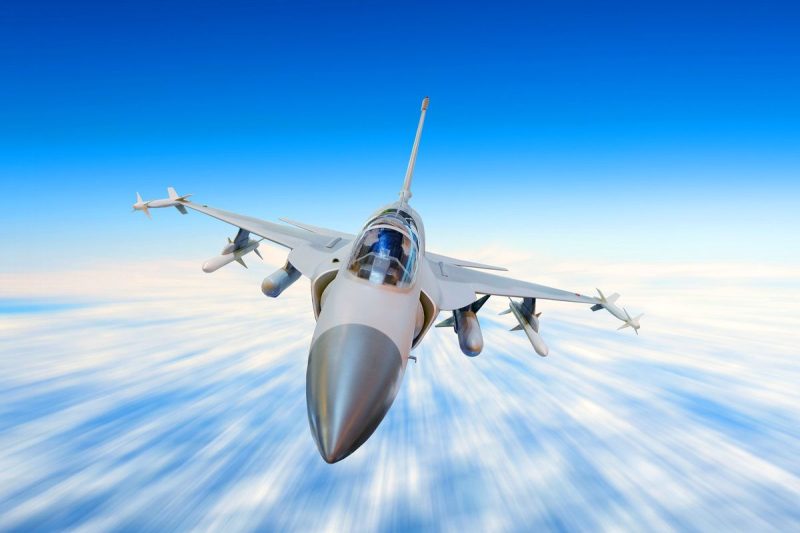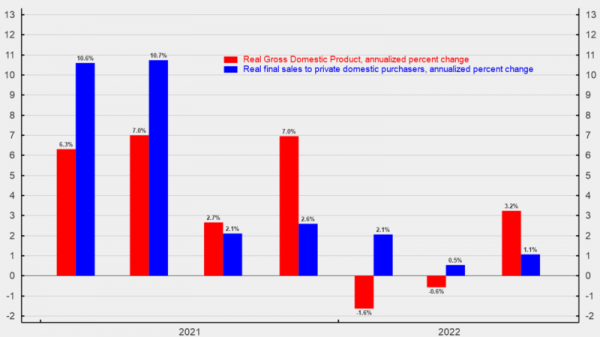

Geopolitical tensions are rising in several regions of the world, and governments are expected to increase their defense spending in the years ahead. This has investors looking to aerospace and defense stocks.
The entrenched Russia-Ukraine war, widespread conflict in the Middle East, military posturing in the ongoing US-China trade conflict and the spread of cybersecurity attacks on critical infrastructure — all of these developments and more are driving demand in the global defense market.
In 2024, the five countries spending the most on their militaries were the United States, China, Russia, Germany and India, according to data from the Stockholm International Peace Research Institute.
For the most part, the aerospace and defense industry provides equipment, technologies and services to national governments through contracts. The players in this space are typically defense contractors that design and manufacture aircraft, satellites, electronic systems, software, missiles, drones, autonomous vehicles, tanks and marine vessels.
Global aerospace and defense revenue reached record highs in 2024, according to PwC in its latest annual sector report, totaling US$922 billion across the top 100 companies. However, the firm reports that increased demand is outpacing supply and capacity from defense companies.
5 Biggest US Defense Stocks
Today, the US accounts for the largest share of global defense spending, representing about 37 percent of worldwide military outlays. In fact, military spending represents about 12 percent of the US federal budget for fiscal year 2025. Worsening geopolitical tensions are expected to increase the US government’s spending on defense technology.
1. RTX (NYSE:RTX)
Market cap: US$189.46 billion
One of the most well-known American defense companies, RTX operates in the defense, aviation, space, electronics and cybersecurity sectors. The company captured more than US$80.7 billion in revenue for 2024, up 17.15 percent from the previous year.
The company’s defense solutions arm Raytheon was awarded a US$250 million contract in June 2025 from Japan’s Mitsubishi Electric (TSE:6503) for licensed production of ESSM Block 2 short to medium-range guided missiles.
‘Under the Direct Commercial Sale contract, Raytheon will provide missile kits, parts, and components as well as technical support for missile production at (Mitsubishi Electric) in Japan,’ the press release stated.
2. The Boeing Company (NYSE:BA)
Market cap: US$151.52 billion
Another heavyweight in the aerospace and defense industry, Boeing designs and manufactures airplanes, rotorcraft, rockets, satellites, telecommunications equipment and missiles.
Revenue for the company declined by 14.5 percent in 2024 over the previous year to come in at US$66.5 billion. The majority of that loss was driven by its airplane segment; its defense segment revenue dropped 4 percent over the same period. The company’s aviation sector has faced heavy scrutiny in recent years after several disastrous incidents linked to the Boeing 737.
As for its defense business, in March 2025, Boeing reported that production of its air defense systems, Patriot Advanced Capability-3 seekers, reached an all-time high in 2024. According to the release, the company produces the seekers as a subcontractor for Lockheed Martin and has sold them to 17 countries, including the US and Ukraine.
3. Honeywell International (NASDAQ:HON)
Market cap: US$144.57 billion
Engineering and technology company Honeywell International develops and manufactures technological solutions for a variety of sectors. The company’s four business divisions are aerospace technologies, building automation, energy and sustainability solutions, and industrial automation. Honeywell’s sales came in at US$38.5 billion in 2024, up 5 percent from the previous year.
Honeywell has numerous defense contracts with government agencies around the world, including right at home with the US Department of Defense (DoD) and US Armed Forces. In May 2025, the company’s JetWave X satellite communication system was selected for use in the advanced US Army aircraft ARES.
4. Lockheed Martin (NYSE:LMT)
Market cap: US$107.57 billion
Lockheed Martin’s business is concentrated on aerospace products and advanced defense technology systems. The F-16 Fighting Falcon fighter jet is among its most notable products, but Lockheed is also well known for its space launchers, ballistic missiles and satellites. The company’s 2024 net sales increased by 5.15 percent from the previous year to just over US$71 billion.
Unsurprisingly, about half of Lockheed Martin’s annual sales are made to the US DoD. However, governments around the world have purchasing contracts with the company to supply their militaries with defense products such as F-16 and F-35 fighter jets. In April 2025, the Royal Norwegian Air Force received the last two F-35 fighter jets of the 52 ordered in its most recent supply contract.
5. General Dynamics (NYSE:GD)
Market cap: US$76.57 billion
Although best known for its Gulfstream business jets, General Dynamics designs and manufactures wheeled and tracked combat vehicles, submarines, weapons and communications systems, as well as munitions. The company garnered more than US$47.72 billion in revenue for 2024, up 12.88 percent from the previous year.
General Dynamics is a major defense contractor for the US military as well as allied nations abroad. In April 2025, the company was awarded US$12 billion in contract modifications for the construction of two Virginia-class submarines for the US Navy, bringing the potential value of the contract to US$17.2 billion. This type of sub is designed for anti-submarine and surface ship warfare and special operations support.
5 Biggest US Defense ETFs
Investors looking to mitigate the risk of investing in individual stocks can diversify their portfolio with defense ETFs. While ETFs aren’t without risk, they are often considered a more stable investment compared to stocks as they allocate funds across a variety of stocks that are rebalanced by an asset manager to meet the return goals of the fund.
The biggest US Defense ETFs by assets under management are listed below according to data from ETF Database.
1. iShares U.S. Aerospace & Defense ETF (BATS:ITA)
Assets under management: US$7.83 billion
The iShares U.S. Aerospace & Defense ETF launched in May 2006. This fund invests in large, generally stable companies in the aerospace and defense sector, particularly those with the majority of their revenues based on long-term government contracts.
The ETF has 40 holdings and an expense ratio of 0.4 percent. IShares U.S. Aerospace & Defense ETF’s top holdings include RTX, Boeing, Lockheed Martin and General Dynamics as well as another important name in the industry, L3Harris Technologies (NYSE:LHX).
2. Invesco Aerospace & Defense ETF (NYSEARCA:PPA)
Assets under management: US$5.41 billion
Invesco Aerospace & Defense ETF launched in October 2005. Like ITA, it also tracks large, stable aerospace and defense stocks with steady revenue streams from long-term government contracts.
While it has more holdings than ITA at 57, it also has a higher expense ratio at 0.58 percent. Unlike ITA, Honeywell is listed among Invesco Aerospace & Defense ETF’s top holdings in addition to the other biggest US defense stocks.
3. SPDR S&P Aerospace & Defense ETF (NYSEARCA:XAR)
Assets under management: US$3.76 billion
SPDR S&P Aerospace & Defense ETF, which launched in September 2011, offers exposure to large cap stocks in this sector. It has the lowest expense ratio on this list at 0.35 percent.
Of the 40 holdings XAR tracks, the most heavily weighted US defense stocks include RTX, Boeing, Lockheed Martin and General Dynamics as well as Rocket Lab (NASDAQ:RKLB) and AeroVironment (NASDAQ:AVAV).
4. Global X Defense Tech ETF (NYSEARCA:SHLD)
Assets under management: US$2.69 billion
Launched in September 2023, Global X Defense Tech ETF is the newest defense ETF on the market. While it does offer a geographic diversity of exposure to the overall defense sector, its holdings are just over 50 percent based in the United States. This ETF has an expense ratio of 0.50 percent.
SHLD has 43 holdings, including the biggest US defense stocks such as Lockheed Martin and General Dynamics, but is also heavily weighted in Palantir Technologies (NASDAQ:PLTR) and L3Harris Technologies.
5. Direxion Daily Aerospace & Defense Bull 3X Shares (NYSEARCA:DFEN)
Assets under management: US$249.19 million
Direxion Daily Aerospace & Defense Bull 3X Shares launched in May 2017 with the goal of tripling the daily return of an index of major defense industry stocks.
DFEN has the highest expense ratio on this list at 0.95 percent. Some of the most heavily weighted stocks of its 39 holdings are Boeing, Lockheed Martin and RTX.
Securities Disclosure: I, Melissa Pistilli, hold no direct investment interest in any company mentioned in this article.

























